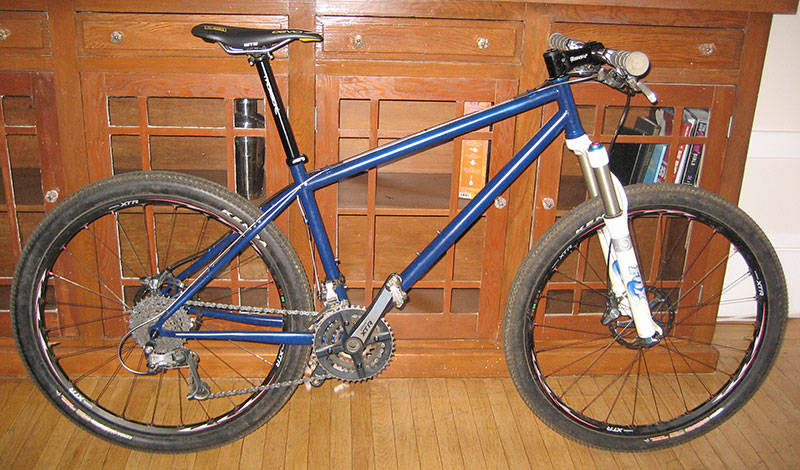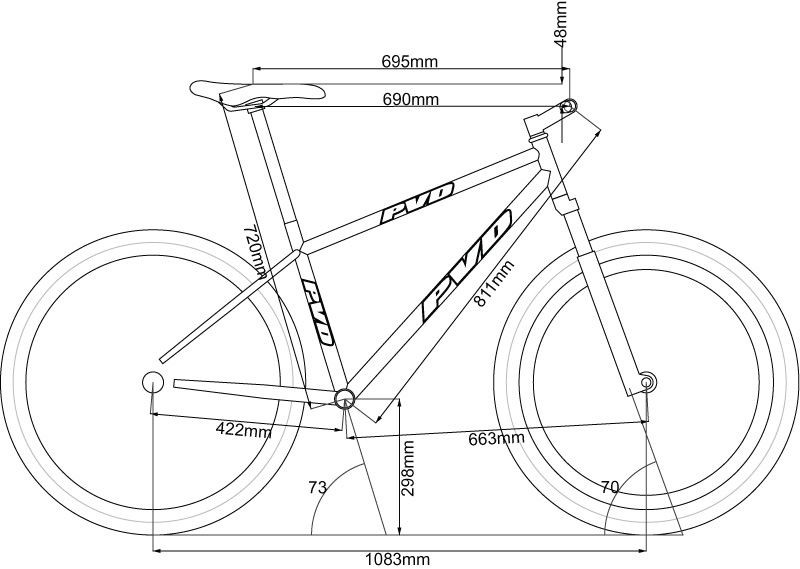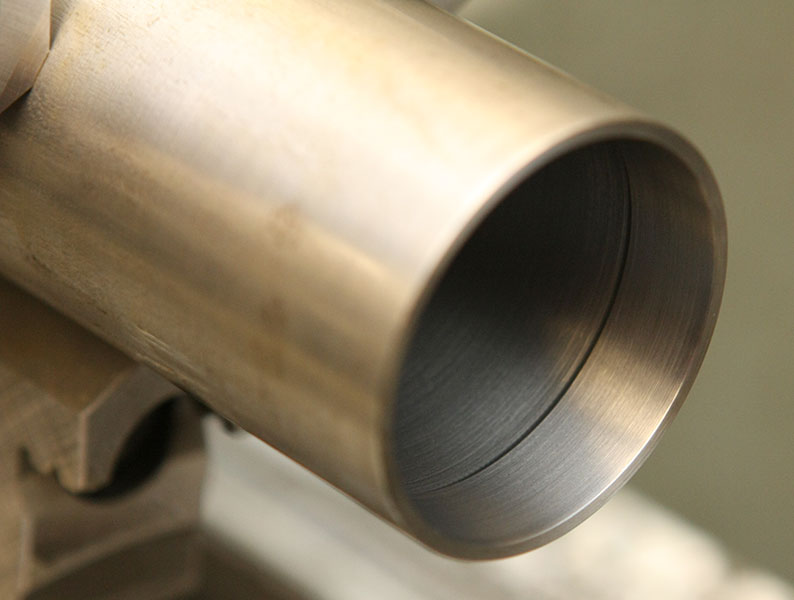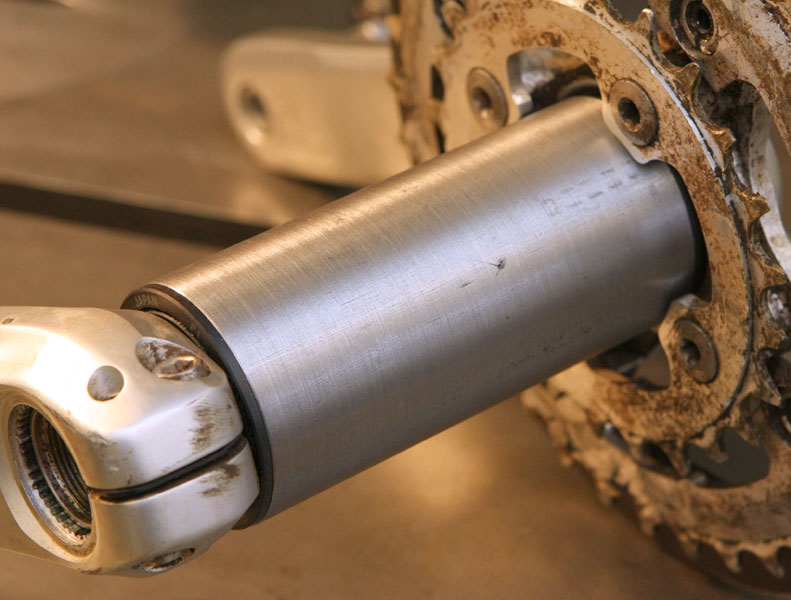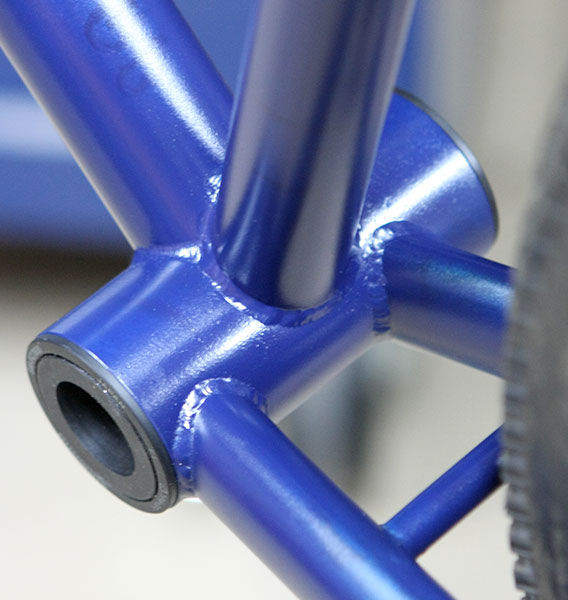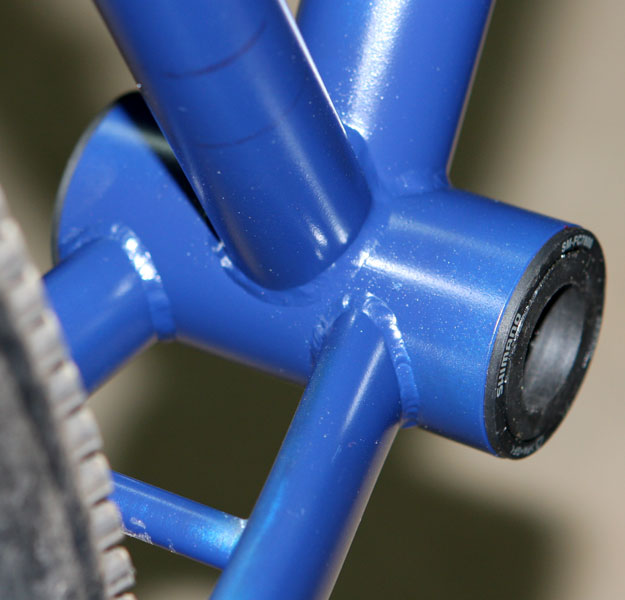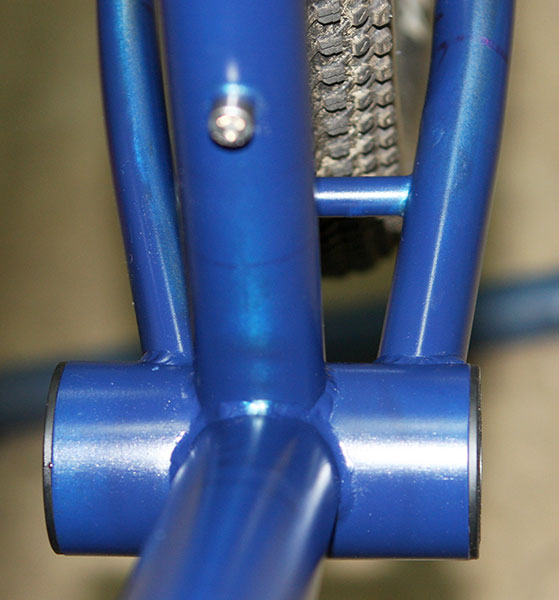Difference between revisions of "PVD Norba 1"
(→The Tubes and Parts) |
(→Photos) |
||
| Line 73: | Line 73: | ||
==Photos== | ==Photos== | ||
| − | + | Test set up. The FD cable stop will be adjusted for perfect cable line. The lower rear housing strap may come down if the new Shadow style derailure permits.<br> | |
[[Image:Norba-1-test-ride-crop.jpg]]<br> | [[Image:Norba-1-test-ride-crop.jpg]]<br> | ||
Revision as of 18:57, 22 February 2008
Contents
The Goal
Josh is a guy who rides with us. He was a former cross-country and downhill racer. Josh is very very fast going up and down the hill. Last fall (07), he entered a local cyclocross race for fun. Instantly, he caught the bug again. He did so well with the cross racing that he decided to campaign some serious XC and Norba events for '08. I'm going to help him with a hardtail for his efforts. He will have a full suspension bike for courses that require that.
This bike has to be super light and super fast. Since Josh has some serious riding skills, I'm going to design the bike to take advantage of that in hopes that he will be able to score some passes at some critical times. Weight is more challenging since this will be a steel bike. I'm going to pull out all the stops.
Fit v. Handling
I know a bit about bike handling. That means that I know what to change to make the bike work differently in differnt conditions. This is nice. I can work a whole lot with this.
Fit is a whole different ball of wax, especially with bicycles. The fit of a bike uses physiology to exact as much power as possible from the rider and increase their endurance. I leave this to the real experts. These days, people with medical and engineering degrees are specializing in figuring out just how to get more from a human body.
Josh is getting fit with a local trainer. I will get some critical numbers from him to make sure that the grips, the seat, and the pedals are in exactly the right postitions relative to each other. The rest is my territory.
Josh went to Craig Upton of Performance Lab HC, He got measured with lasers and tested with power meters. We got some frame numbers that should get as much to the ground as possible.
These are the numbers that I need from the fit guys (not the ST angle). These numbers are not what we ended up using, this is just what I told the fit guy the dimentions we needed.
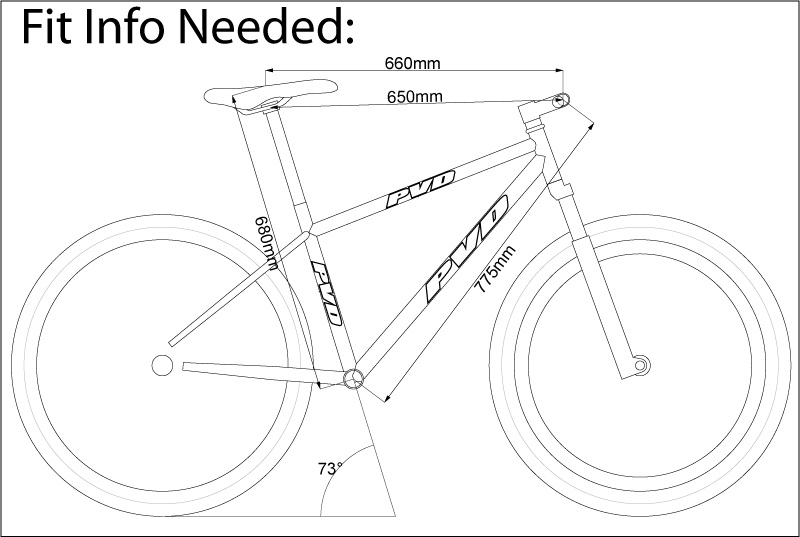
Genisis Geometry
I am thinking of playing some tricks with the weight distribution on this bike. Genisis is a marketing term for a concept in frambuilding that moves the front wheel farther ahead of the center of gravity of the system.
Essentially, I will reduce the stem length to around 80 or 90mm and lengthen the frame. Front wheel is moved forward and the rider keeps the same postition. The rear wheel is about 16.6" from the bb.
90 Degree Stem
Since this is a pure XC race bike and not a fun bike, the frame is going to be designed to have a short 90 degree stem. 90 degree stems are the most efficent stem in terms of power transfer and control. The do reduce the front end rider clearance, but it is expected that this bike will be race with an experienced rider whos only goal is to keep pedaling.
Another goal of having the 90 degree stem is to increase the head tube length providing a greater space between the head bearings. This should improve the front end feel both for and aft and side to side.
Integrated Headset
The lightest, strongest way of doing it. Cane Creek 110. Simply the best.
Integrated BB
92mm wide. 41mm bore. Awsome.
While you would think that this huge shell would add weight to the bike, in a way, it doesn't. The complete system weight should decrease about 20 grams.
The real benifit. Chainstays! The width of these shells is going to seriously reduce the bend on the chainstays and widen their stance. This will increase rear end stiffness while keeping weight down.
A-symetrical Seatstays
High/low dropouts will be used reducing weight and giving the rear end of this bike a very dramatic look.
Custom s-bends of course.
The Fork
2008 Rockshox SID.(Print) This is a complete redesign of this once lame fork. Basically, it's a REBA on a serious diet and supposedly stiffer. This should make it an incredible fork.
The forks travel will be 100mm for increased speed in roughs and downhills. Usually, I want 30% sag on a fork for buttery handlign on trail. Since this is going to be a snappy race bike afterall, 25% is probably more advantagis.
The Print
The Tubes and Parts
- Down Tube - HOXPLAT 09 (691MM), .7/.4/.7
- Seat Tube - NOVA CrMo EXTERNALY BUTTED SEAT TUBE (460mm) 28.6/30.0 x 0.9/0.6/1.2
- Top Tube - HOXGOLD-TT3 (613MM), .7/.46/.7
- Non-Drive Chain Stay - HOX PLAT-CS4, 27.6x20 Oval
- Drive Chain Stay - ZONA OVER SIZED OVAL MTB CHAINSTAY W/12 DEGREE BEND, 30/16 oval x 0.8/.06 x 425mm long x 12.5mm on small end.
- Seat Stays - HOXRCXSS, 16 mm Single Taper
- Dropouts - High/Low. Disk side PVD Design.
- BB - Dura-ace press fit style
- Pacenti SS StampedHydo Stops:Bikelugs.com
- PVD Integrated IS Head Tube
- 27.2 Seat post
Weight
3.9 lbs w/Krylon, Frame only
21.9 lbs as set up for test ride. A light stem, post, seat, grips and the 2008 SID fork should bring the weight down to 21 lbs even. Hopefully less.
Photos
Test set up. The FD cable stop will be adjusted for perfect cable line. The lower rear housing strap may come down if the new Shadow style derailure permits.
